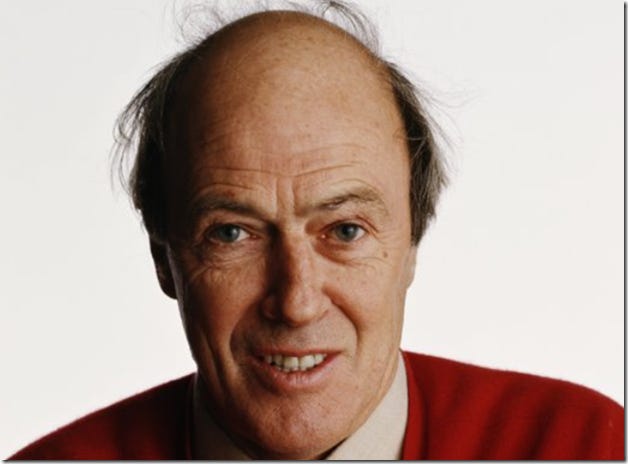Roald Dahl Failed On free Speech And Threw Salman Rushdie To The Mob

September 13th marks the birthday of the late and great children’s author Roald Dahl. In celebration of his prolific storytelling, the day has also been dubbed ‘Roald Dahl Day’.
Dahl’s exceptional storytelling was a huge part of my childhood. I adored his hilarious tales which were perfectly complemented by the illustrations of Quentin Blake. That’s what makes my loss of respect for him as an adult all that more regrettable. If you want to keep your rosy, Dahl infused childhood in tact, you may wish to go away now.
You may remember, or at least know of the fallout that continues to pursue Salman Rushdie to this day after he published a work of fiction in 1988 titled ‘The Satanic Verses’.
The book dealt partly with the life of Islam’s prophet, Muhammad. This didn’t go down well in the Muslim world, leading to then supreme leader of Iran, Ayatollah Khomeini, issuing a Fatwa for Rushdie’s death.
Rushdie requires police protection and had to live for 8 years in a safe house. Fortunately, he has avoided harm so far. Others haven’t been so lucky, namely a number of people attempting to translate his book into their native language.
History will look back at those who threw Salman Rushdie under the bus during this time rather unfavourably. Indeed, if Charlie Hebdo reminded us of one thing, it’s that the moral confusion of the left has remained alive and well since the Rushdie Affair. For some reason, it seems an even more egregious transgression when coming from those that write for a living themselves.
Unfortunately, Roald Dahl was quite vocal in his belief that Rushdie’s writing was the problem, rather than the fascist mob who wished him dead for a work of fiction.
'In a letter to The Times of London, Dahl called Rushdie "a dangerous opportunist," saying he "must have been totally aware of the deep and violent feelings his book would stir up among devout Muslims. In other words, he knew exactly what he was doing and cannot plead otherwise. This kind of sensationalism does indeed get an indifferent book on to the top of the best-seller list, — but to my mind it is a cheap way of doing it." The author of dark children's books and stories for adults (who himself once had police protection after getting death threats) also advocated self-censorship. It "puts a severe strain on the very power principle that the writer has an absolute right to say what he likes," he wrote. "In a civilized world we all have a moral obligation to apply a modicum of censorship to our own work in order to reinforce this principle of free speech."
And for a childhood destroying bonus round, a ‘dash’ of anti-Semitism from Dahl:
‘There is a trait in the Jewish character that does provoke animosity; maybe it's a kind of lack of generosity towards non-Jews. I mean there is always a reason why anti-anything crops up anywhere; even a stinker like Hitler didn't just pick on them for no reason.
As quoted in New Statesman (1983); partly quoted in "The Candy Man" by Margaret Talbot in The New Yorker (11 July 2005)
Of course, the work of Dahl should be celebrated and judged on its own merits, but I also think it’s important to remind people which side of the argument he was on during this vital test of principles.
Stephen Knight is host of The #GSPodcast. You can listen to The Godless Spellchecker Podcast here, and support it by becoming a patron here.


